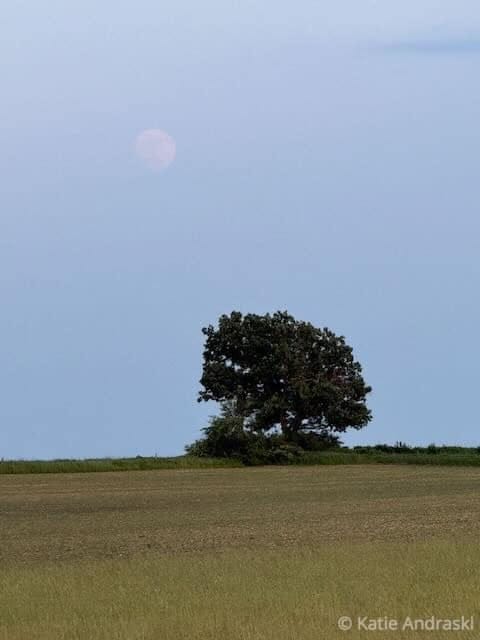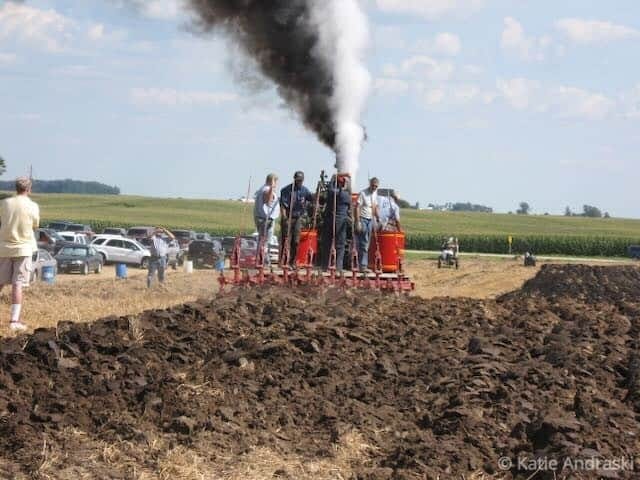Elder Not Elderly A WNIJ Perspective And Some
What if we view older people in our lives, not as frail old people but elders, people whose wisdom and presence help us find our way?
Kathy Bates as Matlock speaks a truth we know well as elderly women. “Well, you see, there’s this funny thing that happens when women age. We become damn near invisible,” she says, before lowering the boom. “Plus, it’s useful,” she continues, “because nobody sees us coming.”.
Sharon Blackie in Hagitude concurs by saying, “Older women, when they’re not rendered completely invisible, are still trivialized and marginalized, and often actively ridiculed” (6).
Things have shifted from when I was in my twenties and thought nothing of making friends with women older than I who became surrogate mothers, guiding me through difficult situations.
But these days the young men and women I know aren’t seeking my wisdom or friendship. It’s a gut punch. I get it, they are busy with family, with making ends meet, or following their dreams. While I’m unique with no children, other friends my age have lamented how younger friends wandered away. It’s like we have beautiful bouquets of flowers that nobody wants.
Blackie asks, “What would it mean, instead of being an elderly woman, to be an elder woman” (7)? In the folk tales it’s often the old woman who holds the keys to solving the puzzle. I witnessed this as I watched my mother brainstorm new ideas with Del Logan, an Onondaga tribal elder. As a child, I was touched by Del’s kindness, a kindness I remember to this day.
Perhaps instead of thinking little old lady, we need to think elder, who might just guide us through our troubles.
I’m Katie Andraski and that’s my perspective.
If you’d like to read this on WNIJ (Northern Public Radio) click here.
What the Psalmist Says
Since my struggle with loneliness is a pretty common theme, a friend suggested I check out the local senior center to meet new people. She was too busy for lunch." You might find fellowship there," she said. It’s a good suggestion, but my immediate response was nope, no thank you, no way. I don’t even want to go to senior luncheons at church. I don’t want to be relegated to people my age or older.
See, I’m bumping smack dab into the bigotry I’ve been complaining about. But I don’t want to be sectioned off with my own kind without mixing with other generations. I want to offer my wisdom, well, at least my presence. I want to hear young people’s stories. Maybe tell mine. At church the youth group activities look more fun. Why can’t we mix up the groups?
And I'm already facing serious loss when these long time, beloved friends die.
Even the writer in Psalm 71 spoke of the isolation and loneliness and spiritual malaise of old age. He begins by saying how God is his refuge, how he’s known God from his youth and he pleas to be rescued from the hand of the wicked. He could be any one of us elders, who grew up in the faith, and dug down in our walk with God, year after year. He says he is a portent to many (Ps 71:7, ESV), a portent, a warning, a prediction that we will grow old, wrinkled, feeble if we are lucky. He declares the future for many. He cries out to God, from a very real fear of abandonment and vulnerability. He feels the devastation of backstabbing.
"Do not cast me away when I am old;
do not forsake me when my strength is gone.
10 For my enemies speak against me;
those who wait to kill me conspire together.
11 They say, 'God has forsaken him;
pursue him and seize him,
for no one will rescue him.'
12 Do not be far from me, my God;
come quickly, God, to help me.
13 May my accusers perish in shame;
may those who want to harm me
be covered with scorn and disgrace.
14 As for me, I will always have hope;
I will praise you more and more." (Ps 71: 9 – 14, NIV).
He hopes his accusers would perish in shame. Well, yes. I hope the accuser of the brethren, Old Scratch perishes. That voice that rises in our minds, perhaps our parents’ voices, perhaps with fear of abandonment morphing into toxic loneliness: “Nobody loves me, everybody hates me, I’m going to eat worms”—a child’s rhyme about suicide.
We are a species made to be in some kind of community. The Covid lockdowns were incredibly cruel, especially to elders who were kept away from their relatives and friends in solitary confinement. They were cruel to people dying alone in the hospital. When I started back in dog class, something clicked in and I felt more whole though none of us talked about personal things or even talked. But we were in each other’s presence.
After expounding on the loneliness of old age, the Psalmist continually calls on God, to draw near and help him. He reminds God:
"Since my youth, God, you have taught me,
and to this day I declare your marvelous deeds.
18 Even when I am old and gray,
do not forsake me, my God,
till I declare your power to the next generation,
your mighty acts to all who are to come" (Ps. 79: 17 -18).
So this lonely old man finds purpose in telling the stories of how God saw him through his life. We all have these stories but will younger generations listen? As a writer, of course I would suggest writing them down, perhaps as a letter. What would you want younger people to know about your story, how God saw you through? Bob Greene’s To Our Children’s Children asks questions that might prompt you with memories. And like the Psalmist you could open a conversation with the Lord to remind you what those stories are. I have done this with my novel The River Caught Sunlight, and several essays here: How I Met and Married Bruce Part One and Even Moral Breakdown Can be Redeemed, which is actually How I Met and Married Bruce Part Two and Three.
Hadden Turner in The Living Library Apocalypse notes how the current Boomer generation knows how repair or operate or make things in real life that people immersed in digital lives are clueless how to fix, operate or make. Once we’re gone those analogue skills might be lost.
He says, “Much of the knowledge the Boomers have acquired over their many years of life is particularly rich in value for us moderns, for it was acquired before the age of the machine really got going — and certainly before the age of the internet. Latent within their collective memory is the know-how needed to run an analogue world; they can start up again the old, cranky analogue machines and know how to competently wield the hand tools that were used in bygone times.”
For instance Bruce knows how to splice cable for the phone company, a skill that became more obsolete when cell phones took over, though cell towers are still connected by wire to central offices. Someday satellites might be taken out by solar storms and we might need to splice cable to communicate with each other again.
I think about the hobbyists who collect old tractors and steam engines, who know how to keep them running are preserving an important technology as are the farmers who continue to skid logs and farm their fields with horses.
When archeologist Paul Huey and his wife depart this life, a tremendous amount of New York State history will be lost, despite the fact he is well published and his work on Fort Orange has been featured at the New York State Museum in Albany.
Just this morning, CBS Sunday morning told the story of worm grunting, the art of calling worms to the surface to provide live bait to fishermen. The production of plastic worms put people out of business who made a living at this. One of the practitioners lamented that after his son, there is no one to take over.
Hadden Turner also notes that Boomers are the ones who volunteer. “It is though what the Boomers2 as a group do for society that makes their impending exit from the world’s stage so potentially catastrophic. The Boomers make up a significant proportion of our volunteers, contribute the bulk of our charitable giving, and form the bulk of our club, society, and hobby group membership.”
It's volunteer organizations that hold communities together. They make soup kitchens run, work at the polls during election season, mentor kids through organizations like Big Brother/Big Sister. Will younger generations who have been schooled in following their dream and self care or who are so frazzled trying to make ends meet for their families be able to pick up the slack?
Elder instead of elderly changes how we carry ourselves because we have something to offer-wisdom, stories, presence. The Psalmist above offers wisdom as he cries out to God what he’s feeling, as well as lifting up in praise, remembering all God has done.
St. Seraphim of Sarov in Little Russian Philokalia says that if, "You would like to do some other good deed for Christ's sake but either you have not the strength or the opportunity is lacking. This certainly does not apply to prayer. Prayer is always possible for everyone, rich and poor, noble and humble strong and weak healthy and sick, righteous and sinful" (83).
Saint Paul offers a way to respond to being an elder in our self involved culture. He is addressing a woman who has no family, urging the church to support her, but the work she offers is perhaps one we can take up. “She who is truly a widow, left all alone, has set her hope on God and continues in supplication and prayers night and day” (I Tim 5: 5, ESV).
While many of us are not true widows, our husbands may be still alive and we have networks of friends, perhaps the idea of setting our hope in God, praying all day long, might be a proper response to the heartache the Psalmist conveys. Even if the generations behind us don’t want to hear our stories, we have God, walking with us, listening. And funny thing about those talks, people tend to show up for us at his behest.
So perhaps the next time you come across an elder, their face wrinkled, their body hunched over, maybe offer them some time and welcome their presence. Maybe ask what they remember when.







You've opened up new worlds to me -- this time, worm grunting! Thank you!
I can only view this from the point of being a “male.” It sucks for us too. Our friends die earlier. We lose our physical strength and dexterity and somewhat abandon “sports” (our non-lethal substitute for war). But what is worse is the loss of the “team,” “group,” etc. 9where we bond and accomplish some task or project. Much of what we did to make a living and provide no longer exists. Even teaching is blunted as the basics and original wisdom has been jettisoned in the passion to erase the past. Prayer is still good however, although the “answers” are still not always forthcoming, ha, ha.